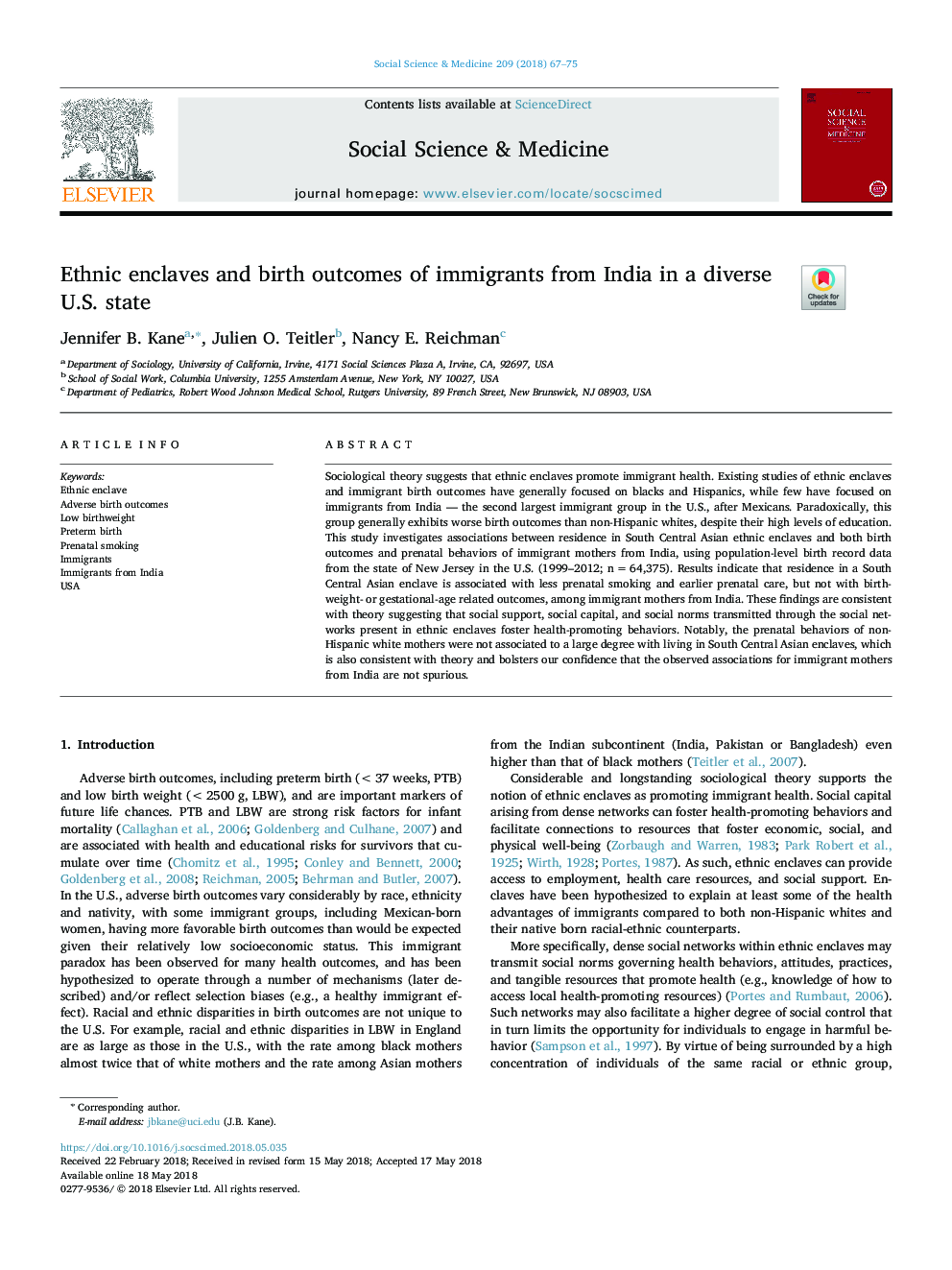| Article ID | Journal | Published Year | Pages | File Type |
|---|---|---|---|---|
| 7327453 | Social Science & Medicine | 2018 | 9 Pages |
Abstract
Sociological theory suggests that ethnic enclaves promote immigrant health. Existing studies of ethnic enclaves and immigrant birth outcomes have generally focused on blacks and Hispanics, while few have focused on immigrants from India - the second largest immigrant group in the U.S., after Mexicans. Paradoxically, this group generally exhibits worse birth outcomes than non-Hispanic whites, despite their high levels of education. This study investigates associations between residence in South Central Asian ethnic enclaves and both birth outcomes and prenatal behaviors of immigrant mothers from India, using population-level birth record data from the state of New Jersey in the U.S. (1999-2012; nâ¯=â¯64,375). Results indicate that residence in a South Central Asian enclave is associated with less prenatal smoking and earlier prenatal care, but not with birthweight- or gestational-age related outcomes, among immigrant mothers from India. These findings are consistent with theory suggesting that social support, social capital, and social norms transmitted through the social networks present in ethnic enclaves foster health-promoting behaviors. Notably, the prenatal behaviors of non-Hispanic white mothers were not associated to a large degree with living in South Central Asian enclaves, which is also consistent with theory and bolsters our confidence that the observed associations for immigrant mothers from India are not spurious.
Related Topics
Health Sciences
Medicine and Dentistry
Public Health and Health Policy
Authors
Jennifer B. Kane, Julien O. Teitler, Nancy E. Reichman,
